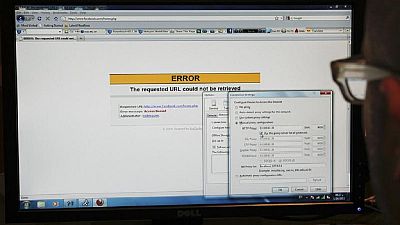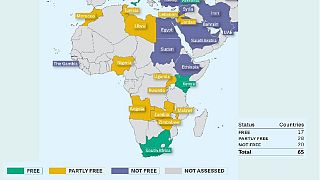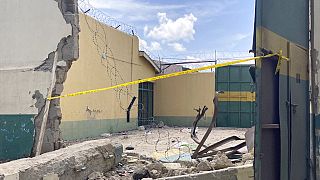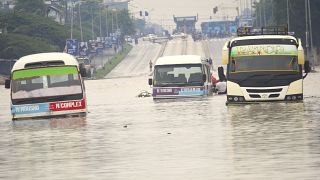Ethiopia
Ethiopian authorities recently blocked internet access across the country. The move was to preserve the integrity of nationwide examinations that started last week (May 31) and is expected to end on Friday June 8.
More often than not when internet cuts are imposed, people are advised to switch to Virtual Private Networks to access the service.
VPNs are basically network setup for use by a limited number of individuals, such as employees of a company and are often encrypted for security.
The Addis Standard news portal which was also affected by the internet cut ‘celebrated’ a limited release of the net and took the opportunity to share how people could join the privileged few who had internet despite the outage.
The three ways a person could get access bordered on diplomacy and international missions (as confirmed by the government), financial wherewithal and top technology.
1. The government in the wake of the ban confirmed that only access to social media was blocked and that other essential services like airline bookings and banking outfits had access to internet. Diplomatic outfits and international organizations operating in the country also have connection.
The Addis Standard thus wrote, ‘‘You are fortunate enough to have been employed at foreign organizations such as the embassies, the African Union (AU) and United Nations (UN) affiliates.”
2. ‘‘You have the means to pay extremely high amount of money to access Wi-Fi networks at luxury hotels.’‘
3. That a person possess the latest smartphones and they know how to configure domain name server of systems (DNS). Alternatively, that a person can install a version of VPN that has not been cracked by the authorities.
The exams that precipitated the shutdown
Thousands of students took the Grade 10 exams between May 31 until June 2 whiles Grade 12 papers will be taken between June 5 and June 8.
The respective exams are for university entrance purposes and also for enrollment into national vocational courses.
“The shutdown is aimed at preventing a repeat of leaks that occurred last year,” Mohammed Seid, public relations director of Ethiopia’s Office for Government Communications Affairs, told Reuters.
“We are being proactive. We want our students to concentrate and be free of the psychological pressure and distractions that this brings.”
2016 leakage and Ethiopia’s internet shutdown ‘attitude’
There was a widespread leak of questions last year leading to a cancellation of papers. The government has yet to speak on when services will be restored.
Beside shutdowns related to education, the government has also blocked internet in the wake of anti-government protests that hit the country last year. Addis Ababa said social media was to blame for spreading protests in the Amhara and Oromia regions.
The government said social media was being used to instigate the mass action that led to deaths of protesters. Ethiopia filters internet regularly using firewalls which often slows network access.
Across Africa, internet blackouts are increasingly becoming popular especially for political reasons. Uganda and Congo Republic blocked access during presidential elections in 2016. The most recent one was a three-month blockage by authorities in Cameroon’s anglophone region.
A United Nations Human Rights Council resolution last year declared the restrictions of internet access as a violation of human rights.
RSF blasts government
The media advocacy group, Reporters Without Borders (RSF) last week slammed the Ethiopian government for the internet shutdown. According to RSF, the action was “a danger to freedom of information and press freedom.”
3rd day of nationwide mobile internet blackout in #Ethiopia : a danger for freedom of information and #PressFreedom !
— RSF Africa (@RSF_Africa) June 1, 2017














00:49
London Marathon: Women's-only world record, Kenyan double victory
00:39
Nigerian chess master plays for 60 hours in bid to set new world record
00:59
Donors pledge $630 million for conflict-hit Ethiopia
Go to video
SA users of Starlink will be cut off at the end of the month
Go to video
Hellen Obiri claims back-to-back Boston Marathon titles, leading Kenyan women's podium sweep
02:41
Lagos marks 10th anniversary of chibok kidnapping